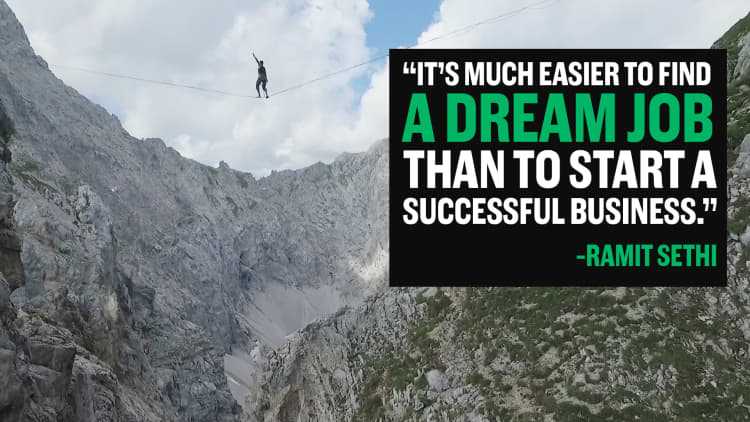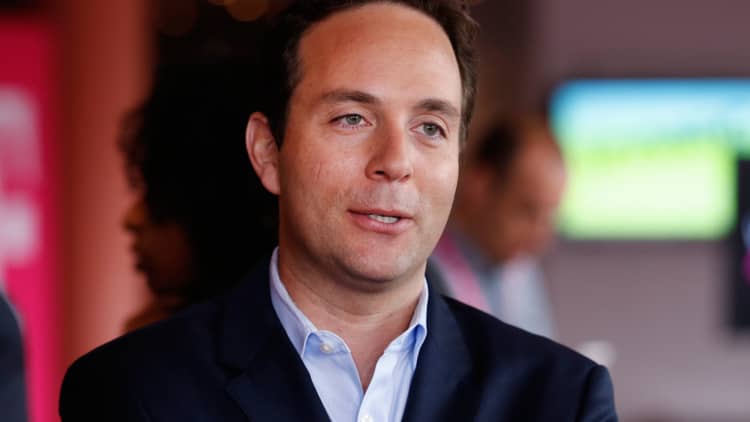There are two types of CEOs: those who have been fired and those who have not been fired yet.
I've been fired twice as chief executive: the initial time in my first CEO job. The writing was on the wall from the moment I joined, but I was too inexperienced to pay attention to the signals.
The second time I was fired as CEO, it was an ousting. When the board wanted to pivot from B2C to B2B in response, I explained we didn't have enough runway. The board's response was fitting: If you don't believe you can do it, you shouldn't be CEO. They were right. I walked out of the board meeting as a former CEO.
After leaving my second post as CEO, I was pretty down on myself. I turned to fellow tech business leaders and they helped me understand two important lessons:
First, in the grand scheme, getting fired isn't a big deal.
Two, getting fired as chief executive isn't about your value as a business professional.It's a matter of the company's strategy for accomplishing a particular task or goal under a particular set of conditions, nearly all of which are out of your control.
Through both experiences, I also came to realize that getting fired as CEO can be a gift. Specifically, these experiences helped me evolve as a leader in three key areas that are imperative to success as a CEO: confidence, tenacity and leadership.

It helped me become more confident
Getting fired, it turns out, can do wonders for self-confidence. Sure, it's a blow at first, but then you go through the stages of grief and come out stronger and more confident than you were before.
After failing for a second time as CEO, I was ready to give up. I asked myself if I should abandon the role and just try something different. But I couldn't. I felt I had to keep going.
When I reemerged, I was done with the self-pity. Giving up would have been like admitting defeat, and I had become CEO in order to win — not lose. I decided that I owed it to my younger self to show that the ambition that led me to become a CEO in the first place was not unjustified.
I was ready to be CEO again. My confidence was back and I knew that in my next post, I would come prepared with a long list of mistakes to avoid: Do not believe in superficial praise. Do not ignore cash burn. Keep planning for the upside, but never turn a blind eye to the potential downside.
I became more tenacious
It's impossible to succeed unless you are learning — and in order to learn, you must be tenacious. You must fail sometimes. This is the nature of experimentation and progress. When you experiment, it's not enough to try once or twice — you have to give it at least half a dozen attempts. Success happens when the timing is right. Tenacity is what keeps you going until then.
When I made the decision not to give up on becoming a great CEO, I first had to turn my previous defeat into something useful. I could either use it as an excuse to abandon my career — or I could turn it into newfound tenacity. It was an obvious decision.
Many people think that tenacity is something you are either born with or not. Others think tenacity increases steadily with success. Neither is true. Tenacity is the human response to adversity.

It's helped me grow as a leader
Nothing of value in this world is created by a single human. Teams produce greatness. For this reason, leadership is a prerequisite for great accomplishment. If you don't know how to lead an organization, self-confidence and tenacity and whatever other amazing strengths you have are meaningless.
When I confronted myself about my two failed CEO roles, I ultimately had to admit that it was my leadership that had failed. My strategy and execution had been good, and my decisions were rational and justified, but my leadership abilities were not there yet.
Even if you are great in a few aspects of leadership, everything else can still go out the window. Leadership is unforgiving like that: You have to act on it at every moment, and every small failure can accumulate into bigger problems over time. Sweeping leadership weaknesses under the rug doesn't work. You must deal with them. We all must.
And this is perhaps the greatest lesson I've learned in being fired as CEO: There is no "perfect score" when it comes to leadership. There is always room to grow and more to learn along the way.
Leadership is not a static skill. Leadership is an attitude — and it's hungry.
Marten Mickos is the CEO of HackerOne. Previously, Marten served as CEO at Eucalyptus, a cloud software company acquired by HP where he then served as the SVP of the cloud division. Before that, he was CEO of MySQL, an open-source database company acquired by Sun Microsystems for $1 billion in 2008.



